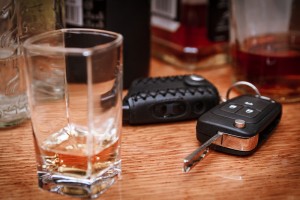 Almost every driver is aware of the charge of driving while intoxicated (DWI) in New Jersey, however, unless you have had prior experience with a DWI case, you may not understand how this type of case works. The following are 10 important DWI facts of which you should be aware:
Almost every driver is aware of the charge of driving while intoxicated (DWI) in New Jersey, however, unless you have had prior experience with a DWI case, you may not understand how this type of case works. The following are 10 important DWI facts of which you should be aware:
- You do not have to be actually driving a vehicle to be charged with DWI. If a law enforcement officer sees you sitting in the driver’s seat or otherwise believes that you simply intend to drive, you can be arrested under NJ law.
- If your traffic stop was unlawful, your case may be dismissed. An officer must have reasonable suspicion that you have violated the law to stop you, otherwise the stop violates your constitutional rights.
- An officer must have “probable cause” to arrest you. Police will often attempt to gather evidence of your intoxication through field sobriety or breathe tests to support probable cause that you are intoxicated.
- Field sobriety tests are not always administered correctly. The result of FSTs may be questioned if an officer was not properly trained or did not administer the tests in the correct manner.
- Breath and blood tests are not always reliable. If an Aclocotest is not properly calibrated or if a lab mishandles a breath or blood sample, the accuracy of the test results may be called into question.
- You do not have to plead guilty to DWI. If you have been wrongfully charged or if your rights have been violated, a DWI attorney will have ways of beating a DWI charge by either arguing to have your case dismissed or seeking a not guilty verdict at trial.
- Your BAC does not have to be over the legal limit to be convicted of DWI. If your BAC is lower than 0.08%, an officer may testify to signs of impairment and it may be sufficient for a conviction if you do not have a proper defense.
- If told to give a breath sample, you must provide one to the police. In NJ, even if you don’t feel the police have a right to ask for a breath sample, if asked you must supply this. Later, if there was no sufficient reason you could have the right to have you matter dismissed. If you fail to provide a sample, even if you were not intoxicated you will still be found guilty for not giving a sample and the penalties are equal if not worse to a DUI.
- DWI can have many different consequences. Consequences can include fines, jail time, probation, license suspension, ignition interlock devices, alcohol education, community service, and even professional consequences.
- Penalties for a DWI increase with subsequent offenses. The penalties become significantly more serious for even a second offense, so avoiding a first conviction is imperative whenever possible.
Find out how an Experienced New Jersey DWI Defense Lawyer can help You
Too many people try to handle their DWI cases on their own and end up facing more severe penalties than they would have with quality representation. A DWI attorney who understands the law and municipal court system in NJ will know how to seek the best possible outcome in your case and limit the effects the DWI in NJ will have on your life. Attorney David Polsky has helped to limit or eliminate DWI consequences for many clients, so please call the Law Office of David W. Polsky at 973-686-9787 for a free consultation today.

 (973) 686-9787
(973) 686-9787 Totowa, NJ 07512
Totowa, NJ 07512 Menu
Menu





